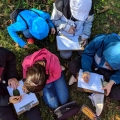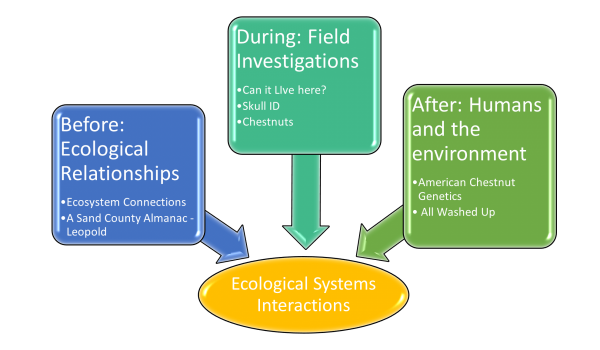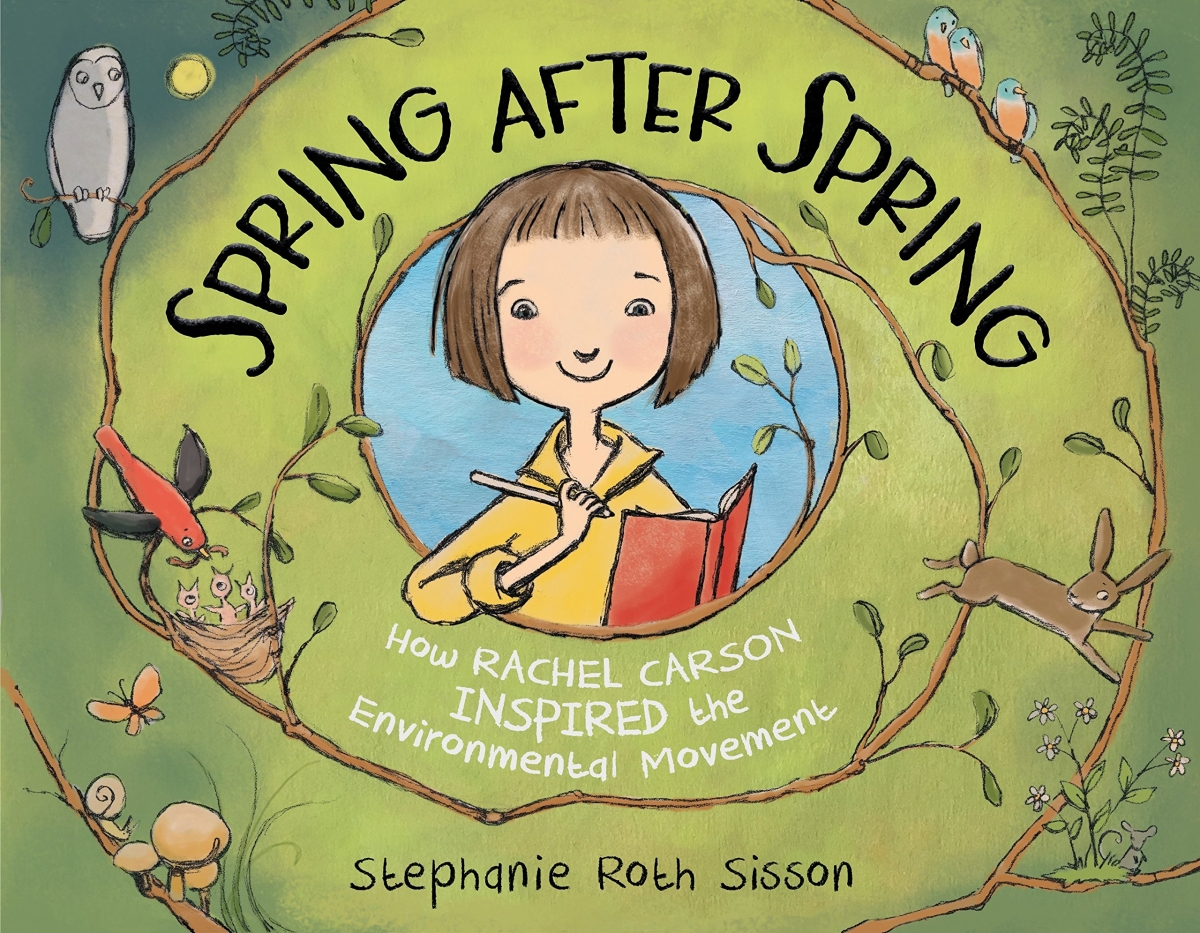- Visit
- Things to Do
- Learn
- Arboretum
- Research
- Support
- About
- People


 On the road to becoming ecologists, students investigate our replica skull collection to explore how specific traits influence individual and population behaviors. Using critical thinking, they assess the biotic and abiotic factors of a wetland environment, determine an organism’s role in a watershed system, and if that ecosystem can support particular organisms. Your young ecologists develop a meaningful understanding of habitat, diversity, and biological interdependence.
On the road to becoming ecologists, students investigate our replica skull collection to explore how specific traits influence individual and population behaviors. Using critical thinking, they assess the biotic and abiotic factors of a wetland environment, determine an organism’s role in a watershed system, and if that ecosystem can support particular organisms. Your young ecologists develop a meaningful understanding of habitat, diversity, and biological interdependence.
Target SOL (Other SOL apply for the before and after activities): Science (2018) LS.1, LS.3, LS.5, LS.6, LS.7, LS.8, LS.10, LS.11 English (2024): 7.RV.1, 7.RI.3, 7.C.1

This lesson cluster can be used to: introduce ecological concepts, increase the depth of knowledge by synthesizing a variety of components in a systems approach, and review and reflect on concepts. Before-visit activities increase student awareness of the process of science, understanding of ecological systems, and create literacy connections with historical conservation figures. With the after-visit activities, students synthesize data and concepts learned /gathered in the field to explain phenomena in ecological systems concepts. Click here for the full cluster.
NOTE: hover over bolded phrases to find links to resources
Before-visit activities increase student awareness of the process of science, understanding of ecological systems, and create literacy connections with historical conservation figures.
During your field investigation at Blandy, your students will explore ecology concepts as ecologists, watershed scientists, and ecological historians do.
Below is an overview of the “standard” program activities to assist you with integrating this field experience into the classroom experiences. Field investigations and schedules may change due to weather, the volume of students, or through communication with Blandy educators.
With the after-visit activities, students synthesize data and concepts learned /gathered in the field to explain phenomena in ecological systems concepts.
 Spring After Spring: How Rachel Carson Inspired the Environmental Movement
Spring After Spring: How Rachel Carson Inspired the Environmental Movement
Non-fiction
Author: Stephanie Roth Sisson
Kindergarten - 3rd Lexile AD790L
Suggested Activities:
Conduct a schoolyard assessment (PDF). Are there areas of the property or management programs that reduce or even damage ecosystems and diversity? Help students investigate ways to take action and implement their plans (persuasive writing, PSA video, presentation before a board or committee, even petitioning to plant habitat enhancements).